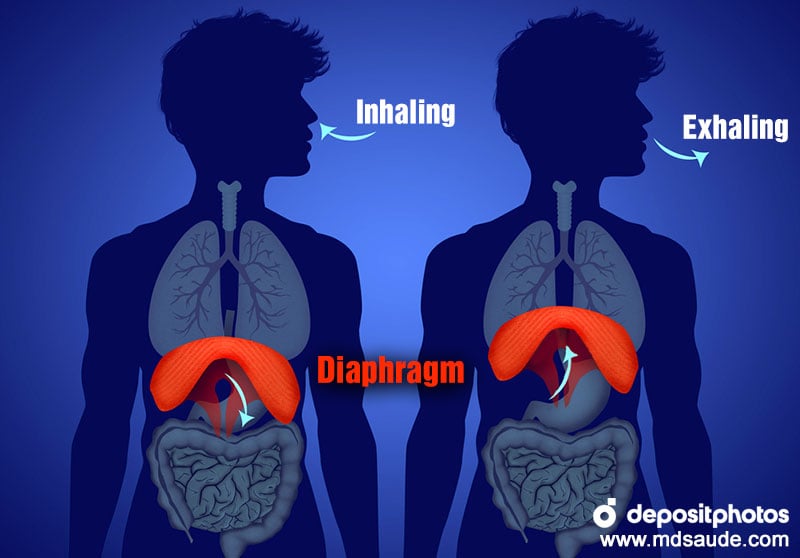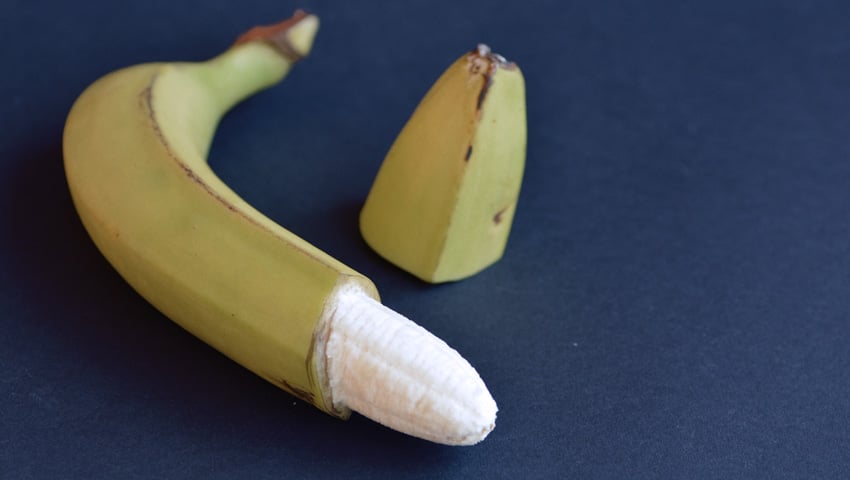Article Summary: TL;DR
- What are hiccups?: A physiological phenomenon that occurs due to a sudden, involuntary contraction of the diaphragm (the muscle between the chest and abdomen). Most cases are short-lived and not clinically significant. They can become chronic in some individuals.
- Classification: Common hiccups: last a few minutes. Persistent hiccups: last more than 48 hours. Intractable hiccups: last more than a month. Persistent or intractable hiccups usually indicate a medical condition.
- Causes of common hiccups: Overeating or eating too quickly, sudden temperature changes, stress, anxiety, consuming specific foods or drinks, like spicy foods and sodas, sleep deprivation, and fever.
- Causes of persistent or intractable hiccups: Irritation of the diaphragm nerves, central nervous system disorders, metabolic changes, side effects of medications.
- Treatment: Common hiccups usually don’t require treatment, as they resolve spontaneously. Home remedies include being startled, holding one’s breath, and gargling with cold water, among others. Persistent hiccups should be investigated and treated based on the underlying cause.
- Medications such as Chlorpromazine, Haloperidol, and Baclofen may be used.
- Surgery may be necessary in rare cases.
- Hiccups in babies: Over 80% of babies experience frequent hiccups. They are considered normal and part of the respiratory system’s development. Tips to minimize hiccups include proper feeding and keeping the baby warm. Adult remedies for stopping hiccups should be avoided in babies.
What are hiccups?
Hiccups result from a sudden and involuntary contraction of the diaphragm muscle, which is situated between the chest and the abdomen.
In most instances, hiccups are a self-resolving phenomenon, fleeting in nature, and bear no clinical implications. However, for some individuals, hiccups can persist, evolving into a chronic issue that poses a significant challenge to manage.
Why do hiccups happen?
The diaphragm is a muscle located between the chest and the abdomen, serving as the primary muscle for respiration. Thanks to the movement of the diaphragm, we can fill and empty our lungs with air.
Hiccups occur when our diaphragm undergoes a rapid and involuntary contraction, prompting us to draw in air unexpectedly. This unintended respiratory motion causes our vocal cords to close abruptly and involuntarily, blocking the inflow of air and resulting in the characteristic hiccup sound, similar to a popping noise.
The closure of the vocal cords prevents air from reaching the lungs, occasionally directing it into the stomach instead. This is why some people swallow air during hiccups.
How are hiccups classified?
Most hiccups last only a few minutes, disappearing spontaneously or after certain maneuvers, such as drinking cold water or holding one’s breath. In some people, hiccups may take several minutes to disappear.
Common hiccups rarely have any clinical significance, and medical evaluation is not typically required for them.
More rarely, a hiccup episode can last several hours. When hiccups persist for more than 48 hours, they are referred to as persistent hiccups. When they last more than a month, they are termed intractable hiccups. Both persistent and intractable hiccups are usually caused by some underlying condition and should always be evaluated by a doctor.
Causes
Common Hiccups
We do not precisely understand why simple hiccups, which last a few minutes and disappear spontaneously, occur. It is speculated that hiccups are triggered by situations that irritate the diaphragm. In 80% of cases, hiccups occur due to spasms only in the left portion of the diaphragm. The reason for this remains unknown.
The situations that most frequently trigger bouts of hiccups include:
- Overeating until the stomach is overly full.
- Eating too quickly.
- Sudden changes in body temperature.
- Emotional stress.
- Anxiety.
- Swallowing air.
- Consuming spicy food.
- Drinking carbonated beverages or other fizzy drinks.
- Consuming alcohol.
- Smoking.
- Sleep deprivation.
- Fever.
The reason the above situations act as triggers for hiccups in some people, and only at certain times, is still unknown. If you frequently experience hiccups, try to identify the most common trigger to avoid it. Sometimes, small changes in habits, such as eating more slowly, are enough to reduce the frequency of hiccup attacks.
Persistent or Intractable Hiccups
Hiccups that last more than 48 hours can be caused by a variety of factors, which are generally grouped into the following categories:
Irritation of the Diaphragm Nerves
Like any muscle in our body, the diaphragm is controlled by our brain, which sends its orders through the phrenic and vagus nerves. Irritations of these nerves can cause unwanted movements of the diaphragm, leading to a prolonged hiccup.
The main situations that can irritate the nerves serving the diaphragm are:
- Gastroesophageal reflux.
- Stomach or duodenal ulcers.
- Distension of the stomach or esophagus.
- Internal tumors in the neck, chest, or abdomen region.
- Intestinal obstruction.
- Intra-abdominal infections.
- Pancreatitis.
- Cholecystitis.
- Goiter.
- Pharyngitis or tonsillitis.
- Irritations of the eardrum or foreign objects inside the ear.
- Pneumonia.
- Pericarditis (inflammation of the pericardium, the membrane surrounding the heart).
Central Nervous System Disorders
Some brain lesions can affect the area that controls the movement of the diaphragm, leading to persistent hiccups. The main causes are:
- Stroke.
- Multiple sclerosis.
- Meningitis.
- Brain tumors.
- Head trauma.
Metabolic Changes
Changes in our metabolism, in the levels of hormones or other substances in the blood, such as electrolytes (mineral salts) and glucose, can also lead to prolonged hiccups. The most common causes are:
- Poorly controlled diabetes.
- Chronic kidney failure.
- Changes in blood levels of potassium, sodium, or calcium.
- Chronic alcoholism.
Medications
Some drugs are associated with prolonged hiccup crises, including:
- Anesthetics used in general anesthesia.
- Corticosteroids.
- Benzodiazepine class anxiolytics (e.g., diazepam, alprazolam, and lorazepam).
- Levodopa.
- Nicotine.
- Ondansetron.
- Alpha methyldopa.
- Chemotherapy (levofolinate, fluorouracil, oxaliplatin, carboplatin, irinotecan).
How to get rid of hiccups?
Common hiccups are not considered a medical problem and do not require specific treatment. They typically last a few minutes and disappear on their own, even if no action is taken.
However, no one enjoys having hiccups, and most people seek ways to curtail the episodes. As hiccups often result from irritation of the diaphragm or its nerves, some simple maneuvers stimulating at least one of these two structures can help end the hiccup bouts.
Many home remedies for hiccups indeed work and are backed by scientific reasoning. For example:
- When we get startled, we experience a sudden surge in the release of a hormone known as adrenaline, which, among many other functions, directly affects the contraction of the diaphragm.
- When we hold our breath for a few seconds, the carbon dioxide (CO2) level in our blood increases. This rise serves as a potent trigger for the brain to activate the nerves of the diaphragm, compelling it to contract.
- When we drink cold water, the vagus nerve —which not only acts on the diaphragm but also innervates areas from the throat to the stomach— gets stimulated by the abrupt temperature shift.
Here are 17 tips that can help put an end to hiccups:
- Get startled.
- Be tickled.
- Hold your breath.
- Gargle with cold water.
- Drink cold water.
- Suck on ice.
- Drink hot water (ensure it’s not so hot that it can scald your mouth).
- Breathe into a paper bag.
- Suck on a lemon.
- Eat ginger.
- Perform tongue pulling (pull your tongue out using your fingers).
- Touch the uvula (the little bell in your throat) with an object, such as a straw.
- Eat a spoonful of sugar or honey.
- Bend your knees and hug your legs, compressing your chest.
- Drink liquids while pinching your nose.
- Try a bit of vinegar.
- Put your fingers in your ears.
How to treat persistent or intractable hiccups
Hiccups persisting for more than 48 hours should be investigated as they’re inevitably caused by a medical condition.
In these cases, treating hiccups involves addressing the underlying cause. For instance, if the patient has an ear infection, antibiotics are the treatment of choice; if their blood sodium levels are too low, replenishing sodium can stop the hiccups; if a medication is the cause, the drug must be stopped, etc.
However, the underlying issue causing persistent hiccups isn’t always easily identifiable. In other cases, the ailment causing the hiccups may not have a specific treatment, such as in patients who have suffered a stroke or head trauma. Thus, doctors often resort to certain drugs that suppress hiccups, without necessarily acting directly on their root cause. Some medications used for persistent hiccups include:
- Chlorpromazine (the most commonly used and researched drug for treating hiccups).
- Haloperidol.
- Baclofen.
- Metoclopramide.
- Gabapentin.
Other options for managing persistent hiccups include acupuncture and hypnosis.
In extreme cases —very rare, by the way— surgery may be necessary, with the implantation of an electrical stimulator in the diaphragm, similar to the pacemakers used in the heart.
Hiccups in babies
More than 80% of babies have frequent episodes of hiccups. In fact, babies start hiccupping while still fetuses in the womb. It is believed that hiccups are crucial for the development of the fetal respiratory system, serving as exercises for the diaphragm and other respiratory muscles.
The more immature the nervous system, the more common hiccups are. Premature babies have more hiccups than babies born at term, who in turn have more hiccups than babies older than six months.
Baby hiccups are much more bothersome to the parents than to the baby itself. A baby with hiccups does not feel pain or get irritated. Babies are not bothered by hiccups as we adults are.
How to avoid hiccups in babies?
It is impossible to prevent babies from having hiccups, especially newborns. However, there are a few tips to help minimize these crises.
Hiccups in babies are usually triggered by feeding or a drop in body temperature. Babies who feed too quickly and swallow too much air usually have more hiccups. Try to keep your baby warm and latched on to the breast to minimize hiccups. After feeding, leave the baby in an upright position so that he can burp and reduce the amount of air in his stomach.
Don’t use tips to stop adult hiccups in babies; they don’t work and can even hurt. Don’t scare, press on his eyeballs, pull his tongue, and squeeze his fontanel. Remember that babies are not bothered by hiccups, so be patient, and they will go away in a few minutes. As the baby gets older, the hiccups will become less frequent.
Hiccups in babies are only a concern if they get in the way of everyday activities such as sleeping or feeding, or if they are persistent and do not go away after a few minutes.
Frequent hiccups in babies over one year old are also unusual. In these cases, mention it to your pediatrician, who will know how to determine if there is a problem behind the hiccups, such as gastroesophageal reflux.
References
- Hiccups – UpToDate.
- What causes hiccups? – Harvard Health Letter.
- Hiccups: a common problem with some unusual causes and cures – British Journal of General Practice.
- Hiccups – Medscape.
- Hiccup: Mystery, Nature and Treatment – Journal of neurogastroenterology and motility.
- Interventions for treating persistent and intractable hiccups in adults – Cochrane Database of Systematic Reviews.
Author(s)
Pedro Pinheiro holds a medical degree from the Federal University of Rio de Janeiro (UFRJ) and is a specialist in Internal Medicine and Nephrology, certified by the State University of Rio de Janeiro (UERJ) and the Brazilian Society of Nephrology (SBN). He is currently based in Lisbon, Portugal, with his credentials recognized by the University of Porto and the Portuguese Nephrology Specialty College.





Leave a Comment